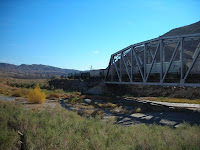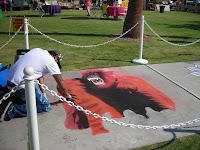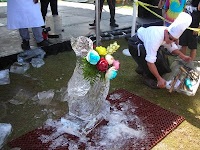
Have you had enough snow yet? You may have heard this before, but no one has seen snow like this in Las Vegas in over thirty years. Henderson got socked on Wednesday with eight inches of snow. Here on the west side of the valley, we got two or three inches both Monday and Wednesday. My Mondays are normally full of things to do, but this Monday I didn’t get anything done. Instead, I spent six hours watching the snow.
We get snow flurries every year at our house because we live in the foothills of the Spring Mountains. Sometimes, I close my eyes and remember what it looked like before all the houses, when the area where my home sits was nothing but open desert. Ten years ago, when my son, Cameron, was a baby, we lived in an apartment at the edge of the rapidly disappearing desert. We had Cameron’s first Christmas in that little apartment. I hated that place. The walls were so thin that we heard everything—and I mean everything—our neighbors did, and our nephew was living on our sofa. I remember when the snow came that year. We were home alone when the snow covered the yuccas and the Joshua trees, painting the desert in white all the way to Red Rock. That year, the miracle of the snow was almost lost on me. I was sleep deprived, overweight, suffering from a very bad haircut, and not adjusting well to life with a new baby.
Here in the desert, snow is a once-in-awhile phenomenon instead of a months-long endurance test. Snow in the desert is a beautiful thing, an anomaly that helps you believe in the Unseen. Snow in the desert is unusual and memorable.
I remember when we had a white Christmas in Las Vegas, in the early 1970s.
(Pictues below.) Johnny Carson joked on the Tonight Show about McCarren Airport being closed due to snow. Snow in Las Vegas! Who had ever heard of such a thing? My dad and I had a rousing snowball fight in the backyard that ended when he fell and hurt his shoulder (FYI, cowboy boots don't supply much traction on ice). I was fascinated by the snow, and even at night I would sit in the backyard and gaze up at the sky, watching the falling flakes.
I was in high school before we had a snowy day again. I discovered that high school boys like to put rocks in their snowballs. I had a bloody nose most of that day. That evening, when I was at a friend’s house, we decided to have a snowball fight. “Just don’t hit me in the face, please,” I told her. She promptly thwacked me right in the face with a snowball, and then apologized profusely as I stood there bleeding on her front yard.
This Monday, when the snow arrived, both my son and husband were home. It’s unusual for all of us to be home during the day. I woke up my son by opening his blinds and announcing, “It’s snowing!” He was out of bed immediately, dressed, downstairs, and outside. We watched as the snow started to stick, and by noon we had a thin blanket of white over everything. Our neighborhood streets were quiet and empty; it felt like we were the only people home that day. Cameron played in the snow until he was soaked; he came inside long enough to warm up and put on dry clothes, then he was back outside. Once there was an inch or so on the ground, he made a snow man. Well, it was more like a snow gnome, but it was a terrific effort. The snow turned the park behind our house into an uninterrupted field of white; I made sure to take pictures before the “sledding” began. The wet, thin snow barely covered the grass, but Cameron was determined. This time he had to go get in a warm shower after soaking a second set of clothes.
When I wasn’t watching my delighted child, I was watching the snow. I sat inside, next to a window, and looked up into the white sky. The flakes swirling down reminded me of the first time I watched snow falling. I remembered sitting on the cinder block wall in my backyard, staring up into the sky, fascinated by the snow. At a time when life often feels strange and unfamiliar, I am reassured to still feel wonder at the sight of snow falling in the desert.
______________
Photo information: Top--My picture taken Thursday from the west end of the valley, looking toward the Strip & the snow-covered mountains; click to enlarge. Below--Family pictures of the 1970s snow. My notes say 1973.

















 If you’re an off-road enthusiast, Southern California abounds with OHV (Off Highway Vehicles) areas, many of them a short drive from Las Vegas. Over the Thanksgiving holiday, we stayed on the ouskirts of Barstow and discovered the
If you’re an off-road enthusiast, Southern California abounds with OHV (Off Highway Vehicles) areas, many of them a short drive from Las Vegas. Over the Thanksgiving holiday, we stayed on the ouskirts of Barstow and discovered the 
































